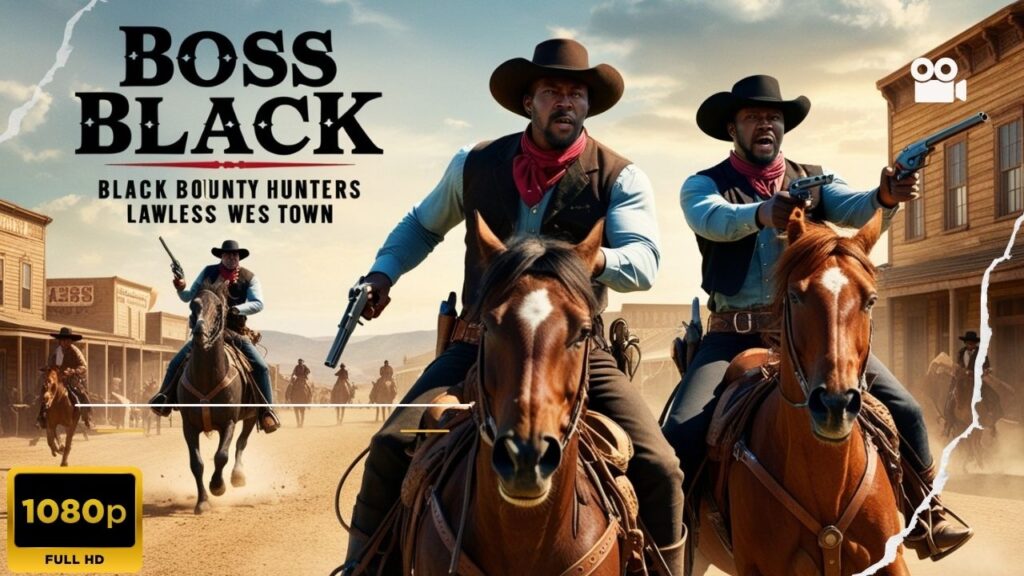Hey, just so you know, some of the links on this site are affiliate links. That means I may earn a small commission if you buy something through them. It doesn’t cost you anything extra, and it helps me keep this site running. Thanks for your support!
Blaxploitation cinema of the 1970s brought a wave of bold, unapologetic films that challenged the norms of the time. Among these, Boss Black (originally titled Boss Nigger) stands out as a significant entry, not just for its provocative title but for its role in redefining the portrayal of African American characters in film. Directed by Jack Arnold and starring the charismatic Fred Williamson, this film pushed boundaries in both content and cultural impact.
The Story Behind Boss Black
Boss Black tells the story of two African American bounty hunters, Boss (played by Fred Williamson) and his partner Amos (D’Urville Martin), who ride into a small western town to claim the position of sheriff. The twist? This town, like many in the Western genre, is predominantly white, setting the stage for a narrative that explores themes of race, power, and justice in a way that was groundbreaking for its time.
Fred Williamson, who also co-wrote the screenplay, plays the lead role with a commanding presence that elevates the film beyond its genre trappings. His character, Boss, is a no-nonsense enforcer of the law, unafraid to confront the bigotry and violence that were all too common in both the setting of the film and the real world at the time.
The Cultural Impact of Boss Black
When Boss Black was released in 1974, it immediately stirred controversy due to its original title. However, this controversy also fueled its popularity, drawing attention to the film’s bold depiction of African American empowerment. In an era when Black characters were often relegated to subservient or villainous roles, Boss Black presented a Black protagonist who was both morally righteous and physically formidable.
The film’s tagline, “White man’s town, black man’s law!” encapsulates the defiant spirit that Boss Black embodied. It wasn’t just a film; it was a statement. The movie played a significant role in the Blaxploitation movement, which sought to create films by and for African Americans, showcasing strong, independent Black characters in a variety of genres.
The Making of Boss Black: Director, Cast, and Crew
Boss Black was directed by Jack Arnold, a filmmaker better known for his work in science fiction with films like The Creature from the Black Lagoon (1954). Arnold’s direction in Boss Black balances the film’s more outrageous elements with a tight narrative that keeps the viewer engaged from start to finish.
Fred Williamson, who starred as Boss, was not just the face of the film but also one of its creative forces. Having established himself as a leading man in the Blaxploitation genre, Williamson brought both his star power and writing skills to the project, co-writing the screenplay with Myrna L. Williams. His collaboration with D’Urville Martin, who played Amos, brought an authentic chemistry to the film, making their partnership one of the highlights of the movie.
The film also featured a strong supporting cast, including William Smith as Jed Clayton, the primary antagonist, and Barbara Leigh as Miss Pruitt, adding depth to the story’s exploration of race relations and justice in the Old West.
The Lasting Influence of Boss Black
Decades after its release, Boss Black remains a pivotal film in the history of African American cinema. While its original title might be jarring to modern audiences, the film itself stands as a testament to the power of representation and the importance of creating narratives that challenge societal norms.
The movie’s influence can be seen in later works that blend action with social commentary, continuing the legacy of Blaxploitation films that dared to depict Black characters as heroes rather than sidekicks or villains. In this way, Boss Black not only entertained but also empowered, leaving a lasting mark on the genre and on cinema as a whole.




